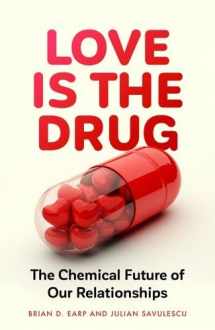
Love is the Drug: The Chemical Future of Our Relationships
Book details
Summary
Description
What if there were a pill for love? Or an anti-love drug, designed to help us break up? This controversial and timely new book argues that recent medical advances have brought chemical control of our romantic lives well within our grasp. Substances affecting love and relationships, whether prescribed by doctors or even illicitly administered, are not some far-off speculation - indeed our most intimate connections are already being influenced by pills we take for other purposes, such as antidepressants. Treatments involving certain psychoactive substances, including MDMA-the active ingredient in Ecstasy-might soon exist to encourage feelings of love and help ordinary couples work through relationship difficulties. Others may ease a breakup or soothe feelings of rejection. Such substances could have transformative implications for how we think about and experience love. This brilliant intervention into the debate builds a case for conducting further research into "love drugs" and "anti-love drugs" and explores their ethical implications for individuals and society. Rich in anecdotal evidence and case-studies, the book offers a highly readable insight into a cutting-edge field of medical research that could have profound effects on us all. Will relationships be the same in the future? Will we still marry? It may be up to you to decide whether you want a chemical romance. -- .


We would LOVE it if you could help us and other readers by reviewing the book
Book review



